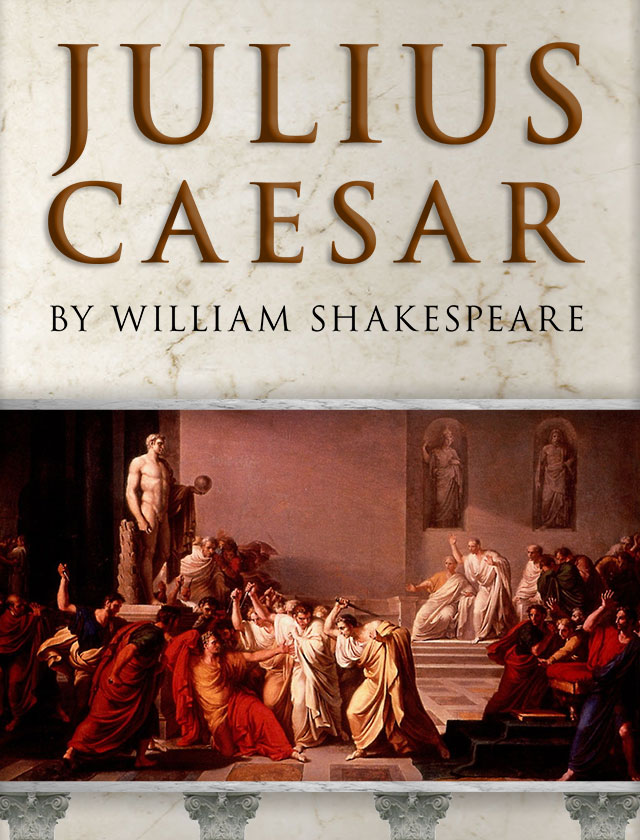Julius Caesar
by William Shakespeare
Introduction
William Shakespeare’s The Tragedy of Julius Caesar was first performed at the Globe Theater in 1599, and the politics which it explores have clear parallels to the political situation of England at that time. Queen Elizabeth I was on the throne, and she was sixty-six years of age. She was unmarried and childless, so the question of who would succeed her upon her death was an open one. Like Julius Caesar in the play, Elizabeth had no natural heir, and the English people worried about the effects of the power struggle that might take place if there were many people vying for the throne. In Julius Caesar, Shakespeare explores themes of leadership, power and corruption which would have been quite relevant to the people of the day.
Cleverly, Shakespeare explores these themes in the context of ancient Rome. It is likely that Shakespeare used Plutarch’s Lives of the Noble Greeks and Romans, written in the first century AD, as his historical source material for the play. Plutarch’s historical biographies of influential ancient Romans emphasize his belief that the individual decisions and actions of great men are responsible for shaping history. In Julius Caesar, Shakespeare offers a window into the thoughts and private lives of such men as Julius Caesar, Marcus Antonius, Caius Cassius and Marcus Brutus—all real historical figures whose actions had a profound impact upon ancient Rome. Of course, Shakespeare’s account is tailored for the stage, rich in poetry, and like all of his work, explores a variety of moral and humanistic themes which resound in any era.
To understand Julius Caesar, it is useful to have some historical context for the period in which it is set. The play opens in the year 44 BC, at a time when Rome was at the epicenter of a vast and growing empire. Rome was a republic, governed by a ruling class of senators. The senators, not surprisingly, were often at cross purposes or engaged in power struggles amongst themselves, and much of the people’s allegiance belonged in reality...
Sign up to continue reading Introduction >